- Home
- Hugh Howey
The Shell Collector Page 2
The Shell Collector Read online
Page 2
A friend of mine at the Times has lived in this city for over seventy years. He runs the obits, is semi-retired, says his job is to write farewell letters to old friends. He talks about the old days when New Yorkers didn’t need to check the tide tables before their commute to work. He talks about days when you made sure your train was running, checked if you might need an umbrella or a scarf, not whether your levee had breached or if your neighborhood pumps were down. The man is a walking memory of less-flooded times.
But even in my lifetime, there’s been a lot of change. I remember when I was young, thinking the sea was only capable of offering solace. She was only ever a calming force. I didn’t see her angry side until I was in my teens.
Hurricane Julia. There was a mandatory evacuation. My sister and I helped Dad put the storm shutters over the windows while Mom fretted over which irreplaceable things to pack in the car. We left not knowing what we would return to, if anything. The highway was a parking lot, so Dad took us down the coast before cutting in to the interstate. Driving along the beach, with the horizon a dark and foreboding gray, he pulled onto the shoulder so we could all marvel at the sky.
My sister and I begged to run up to the top of the beach access for a better view. A glance at Mother, our arbiter of risk, the slightest of worried nods. “Be quick,” our father had said.
As loud as the wind was, the sea was louder. Like thunder in my bones. I heard the angry waves before we got up the slick wooden stairs. At the top of the walkway, I stood and gripped the rail and leaned into the wind and watched an ocean I thought I knew whip and thrash around like an enraged beast.
Mountains of white foam crashed down in avalanche after avalanche. The waves bashed the rocks and chewed up the sand. Our parents used to say that the shoreline was forever changing, that a storm might move an entire beach or that the rising seas would push inland and cover what used to be shoreline, but I was too young to notice these things, and I’d never seen a storm like this.
Watching the sea that day, I thought of the people on the local news who got interviewed about a neighbor who had done something heinous. “He was always so quiet,” the neighbor would say. “He was the nicest person in the world.”
That’s how I felt then, seeing that something so familiar had become completely unrecognizable. A loved one had snapped, had become angry. The waves that normally drew us to her now caused our family to flee in terror.
I chose to blame the storm and the wind back then, rather than the sea. I made excuses for her.
As the traffic on Broadway inches south to a symphony of squeaky brake pads and prolonged horn blasts, I think back to the next time I saw the ocean angry. It was my freshman year in college. I went out on a boat with some friends and just assumed they knew what they were doing, that they’d checked the weather. We were five miles offshore when we saw the squall: a great cliff of clouds that stretched from the heavens down to the sea—white on top but a dark gray beneath, like a pristine wedding veil someone had dragged through the mud.
There was no going around it, so we tried to race back to the inlet, but the storm was moving too fast. Winds over fifty miles an hour. It hit us all at once like a heavenly fist, a mighty slam of stinging rain and raucous seas. The outboard came out of the water as a steep wave lifted us up, and the engine stalled. We huddled in the floor of the boat, gripping each other and the rails, quiet, shivering, drenched, the boat filling with water, all of us absolutely terrified. The sea rose around us in crashing pyramids. I thought she would swallow us, this thing from which I had only known love. I learned to fear her then, and to simultaneously hate myself for feeling that fear. Afterward, I made more excuses: I blamed it on the sky, on the weather, on the poor planning.
Abusive relationships often go like this: falling in love, not seeing the ugly side, coming up with rationalizations when you do. It’s hard to get free, because you just want to recapture some lost feeling. You want to feel safe, respected, honored again. And you’ll play games with your mind to make that happen. It’s the alcohol’s fault; it’s the stress of their job; you may even make the great sin of blaming yourself.
By the time I was born, they’d already built the levees around Manhattan. Much was made of the project back when it was just an idea: how much it would cost, how unnecessary it was, debates about whether the sea would rise or not. Reading a historical account of the levee project today is strange, knowing what we now know. You marvel at the lack of impatience, at the bickering over details and budgets. Coastlines around the world were being redrawn while people argued whether anything was even occurring, much less whether it was our fault.
When the Hudson first breached the new levees, I was working as a young writer at the Times. It was a perigean spring tide, when the moon is at its closest to the Earth and it lines up perfectly with the sun. What used to merely flood the edges of Manhattan now marched across Broadway at midtown. The subways flooded. The city was brought to its knees by an extra six inches of water.
The Hudson River and the East River transformed overnight. No longer beautiful backdrops skirting the city, they became a coiled threat. A lingering drunk. Something to be wary of at all times. I can feel them right now, running down either side of Manhattan, their waters higher than these streets, held back only by great walls and elevated parks. Here I am trapped in the middle, creeping along in a trickle of traffic that flows slower than the tides. Those bodies of water could come together at any moment and drown us all. That’s what they’ve become. And we let them.
Like a lot of people, I sold my car soon after the big levee breach and bought an old electric. Didn’t care about the cost. I changed a lot of habits. And like a lot of people, I made excuses for the rising sea levels. I blamed the companies pumping oil and gas from the ground. I blamed the smiling CEOs at the helm, like Ness Wilde. I blamed the politicians who refused to do anything as they kept getting reelected. I blamed anyone other than the glorious sea of my remembered youth.
I blamed anyone other than myself.
4
The taxi lets me out on Worth Street, which is high and dry. Inside the Federal Plaza, I go through a security routine that has me patting my pockets for my boarding pass. I have to practically disrobe and send my bag, shoes, and coat through one machine while the rest of me stands inside another to get a thorough scanning. On the other side of the security station, I present Agent Cooper’s card to a man behind an information desk. He picks up his phone and speaks to someone while I thread my belt back through my slacks.
“Fourth floor,” he tells me, hanging up the phone. “Elevators are to the left. Someone will meet you up there.”
I make my way toward the elevators, and now that I’m in this building, I wrack my brain for what Ness Wilde might have done to have gotten the FBI’s attention. Tax evasion is the most obvious. Ocean Oil gets press every year for how little they pay in taxes compared to regular folk like me. Then again, people like me don’t have entire divisions of tax experts on the payroll. And would that be the FBI’s jurisdiction? I get all the three-letter agencies confused.
Whatever it is, I imagine I’ve got some rewrites ahead of me. Yesterday’s piece was about Ness’s great-grandfather. I broke the story up to cover each of the four generations of Wildes individually. If Henry plans to run them weekly, that gives me a few weeks before I have to turn in any revisions on Ness. Plenty of time to tack on whatever’s happening here. A picture of Ness Wilde in handcuffs above the center fold flashes before me. I’m smiling as I step off the elevator.
“Maya Walsh?” a young man asks. He’s dressed like a TV version of what an FBI agent looks like: black suit, scuffed black shoes, thin black tie.
“Agent Cooper?” I ask.
“I’ll take you to him. This way.”
I follow the young man through a maze of cubicles toward the far side of the building. We stop outside an office with Cooper’s name on a brass plate. The young man knocks twice, then lets me inside. The office
is dimly lit, the blinds drawn down over the windows. Cooper sits behind his desk, looking at an open folder. A single lamp illuminates the space. There’s a scattering of seashells across the desk, lining the windowsill, and more on top of the filing cabinets. Cooper is obviously a serious collector, and I feel immediately more at ease.
“Ms. Walsh,” he says. He closes the folder, stands up, extends his hand.
“Just Maya,” I say. The young deputy backs out and closes the door, leaving us alone.
“Call me Stan.” He smiles and holds my hand a little longer than necessary. Is he hitting on me? I can never tell. Either way, my mind does this weird New York thing where it imagines me dating every single person I meet, regardless of age, gender, or what part of town they live in. I understand that this is a municipal disorder and that I’m not the only sufferer. And while Agent Cooper is handsome and a collector, I don’t see myself dating an FBI agent. I’m good at this: ruling people out with excuses as flimsy as they are fast.
“Please, make yourself comfortable.” He waves at a chair, and I sit.
“So you’re the reason my story didn’t run in this morning’s edition,” I say.
“That’s right. Your government needs you, Ms. Walsh.”
He smiles to let me know he’s being cheesy on purpose. And yeah, I am not dating a cop. I’m pretty sure the FBI are the cops. The CIA are the spooks, and the NSA monitors my online shopping habits. I feel like this is right. What I don’t understand is the ATF.
“As you may know, Ness Wilde—”
“I have a quick question,” I say.
“Shoot.”
I lean forward. “What exactly do tobacco and firearms have to do with one another?”
Agent Cooper blinks. Twice. “I’m sorry, what?”
“The ATF. Why put those things together?”
“It’s … uh … has to do with federal oversight of … state-level regulat—”
“Okay, so you don’t know either.” I settle back in my seat, reminding myself to Google this later.
Agent Cooper studies me for a prolonged moment, clears his throat, then seems to gather his wits. “Ms. Walsh—”
“Maya.”
“Of course. Maya. Your editor informs us that you’ve been digging into Ness Wilde’s past. You’ve got a series of pieces planned on him and his father, grandfather, et cetera.”
“That’s right. And I suppose I’m here because you’ve been doing some digging as well. Is this where we exchange notes?” I nod to the thick sheaf of papers Cooper was looking through when I entered. “Is that his folder?”
Agent Cooper laughs. He nods toward the row of filing cabinets that covers one wall of his office. “No. His folder is right there. This one is yours.”
I lean forward and grab it, and Cooper flinches, but doesn’t try to stop me. Inside I find a copy of an old résumé from a decade ago, one I think I uploaded to a public headhunting site. It’s woefully out of date except for my degrees and a few internships. Behind this are printouts of various columns I wrote for the Times. They go back quite a ways, and I have a feeling all of this was printed out recently, like Cooper has been cramming rather than studying.
“If this is all you’ve got on me, I need to live it up a bit more.”
Agent Cooper laughs. He opens a drawer in his desk and reaches inside. I half expect a different folder with some of my college exploits. Instead, he brings out a small plastic case, bright orange, about the size of a closed fist. “Three months ago, a man was found dead in his apartment in Portland, Maine—”
Cooper pauses as I gasp out loud and lean forward, eager to hear more. Worse, I think he can see my genuine excitement at the idea that Ness Wilde is guilty of actual direct murder rather than the indirect kind.
“The gentleman died of a heart attack,” Cooper says. “He was seventy-two years old. No foul play suspected.”
The reporter in me sags in her seat. The rest of me is happy for the deceased. I guess.
“Two weeks later, this goes up for auction alongside other items from the gentleman’s estate.”
Cooper slides the plastic case across the desk. It looks like one of those waterproof boxes snorkelers use to keep things dry while they’re out in the surf. There’s a complex latch with a slot for a key. It’s unlocked, but the latch is stiff. A tight seal. When I lift the lid and see what’s inside, the air seems to evacuate the room.
A lace murex, one of my favorite shells, is nestled inside. Medium-sized, just over an inch long. I move the box into the cone of light from the lamp and note the bright pink aperture and tight apex. The inner lip is so shiny, the shell must be wet. But touching it, I find it to be dry. It just hasn’t lost its luster.
“It looks flawless,” I whisper.
“It is,” Cooper says. “I understand you know a thing or two about shells.”
I think of all the articles he has in that folder, many of them from back when the Times had a science section where my shelling column used to run. “I studied to be a marine biologist,” I say. “Being a reporter happened by accident.” Which isn’t quite right, but the truth is too complicated to get into.
“I’d like to hear your expert opinion on this piece.” Cooper places a loupe on the desk, but I reach into my purse and retrieve my own. My palms are already a little clammy. It’s not often that I get to handle shells this rare.
“Can we open those blinds and get some more light in here?” I ask.
He hesitates, then gets up and raises the blinds. The sunlight streaming into the office catches the ensuing shower of dust. “Thanks,” I say. I bring the loupe to my eye and pull the shell close until it comes into focus.
The murex is distinct for the chaos of crenelations that adorn its edge. They jump off like crashing waves, like amoebas, or a pattern or paisley. The crenelations on this particular specimen are incredibly crisp. Untouched. And the sutures between the whorls are deep and pronounced. The lip of the aperture, where the slug would reside, hasn’t been chipped. And there’s no sign of sand-wear, no dulling of the periostracum from having been tumbled up a beach.
“Was it stolen from a museum?” I ask. For a moment, I wonder if maybe Ness Wilde isn’t a suspect in a case at all, but that perhaps this shell was taken from his collection.
“At what price would you value that shell?” Cooper asks me. He waves his hand when he sees I’m about to complain or make excuses. “Ballpark,” he says. “I’ve had others look at it. I just want your opinion.”
“I wouldn’t know where to begin,” I admit. “It doesn’t look like it rolled up on any beach.” I look at the crenelations again. They rarely survive any kind of rough handling. “I shouldn’t even be touching this without gloves, to be honest.”
“Just throw out a number,” Cooper says.
“Well, the market is a tad down right now, but a shell like this, I would guess the right buyer would pay between two and three million for it.”
Just hearing myself say this, I have to put the shell back into the box. Gingerly. Cooper quietly laughs at something, and I have to assume it’s my estimate, that their experts said something much different. So I start to defend it.
“You have to keep in mind that this species has been extinct for twenty or thirty years,” I say. “And price is all about condition. I have a murex in my collection that I’d be lucky to get a thousand dollars for. It has dozens of chips, plus a hole clear through the—”
“Your number is solid,” Cooper tells me. “Here’s the problem: we dated that shell, and it’s between two and three years old.”
“That’s impossible,” I say.
Agent Cooper reaches into his drawer again and pulls something else out. He extends his fist to me. I hold my palm out to accept, and he deposits a second lace murex in my hand. While I’m gawking at it, he brings out a third.
“What do you think now?” he asks.
A glance tells me that these are in a similar condition to the first. And now I understan
d why the FBI is involved. I look over the second murex with my loupe. “These are the best fakes I’ve ever seen,” I say. And I’ve seen my share. I don’t keep reproductions in my own collection, but I have friends who are less scrupulous, or who just get taken advantage of. Across Manhattan, there are thousands of tourist traps with windows full of shells and camera lenses and electronics at prices too good to be true. And for a reason.
“You’re in good company then,” Cooper says. “They’re the best fakes my department has ever seen. They’re good enough to fool our testing equipment—”
“Wait,” I say. I take in the collection of shells scattered around the room and see them in a new light. “I thought the Secret Service handled this sort of thing.”
“You’re thinking of currency,” Cooper says.
“Oh, yeah.”
“Like you, we assumed these were fake just from the condition. And the fact that someone was dumb enough to dump all three of them at once. So we took a sample and dated them, which was the nail in the coffin. At that point, we traced the shells back to the deceased.”
“Who was he?” I ask.
“Dimitri Arlov. Former physicist, among other things. A polymath. When he died he was in the employ of Ocean Oil.”
“The guy who owned these shells worked for Ness Wilde?”
“He worked for his company, yes. In exploration, we think.”
“I don’t get it. Ness is easily the foremost shell collector in the world—” But then I stop and think about what I’m doing in that office. I think about the fact that Henry hung up on Ness’s assistant, and that the FBI called Henry right back. For some reason, I had assumed they were listening in on the Times.
I look up from the shell and study Agent Cooper. “You guys have been tapping Ness Wilde’s phones.”

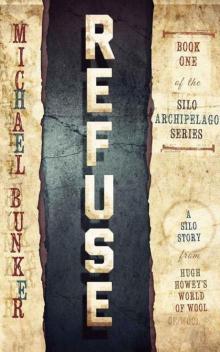 Refuse (The Silo Archipelago Series Book 1)
Refuse (The Silo Archipelago Series Book 1)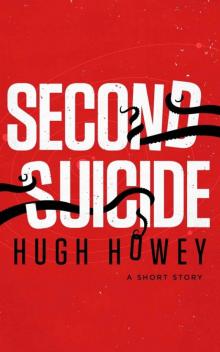 Second Suicide: A Short Story
Second Suicide: A Short Story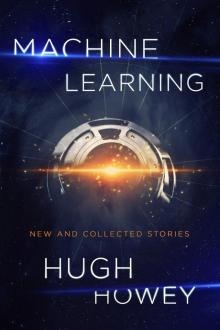 Machine Learning: New and Collected Stories
Machine Learning: New and Collected Stories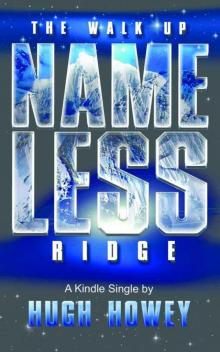 The Walk Up Nameless Ridge
The Walk Up Nameless Ridge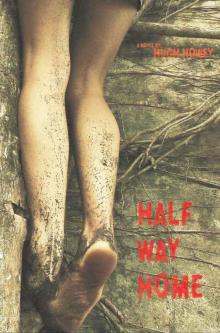 Half Way Home
Half Way Home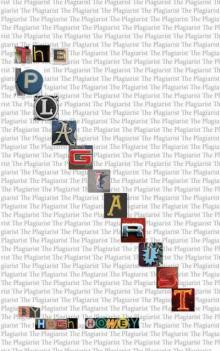 The Plagiarist
The Plagiarist Peace in Amber
Peace in Amber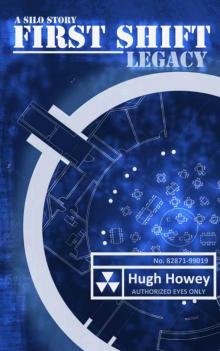 First Shift: Legacy
First Shift: Legacy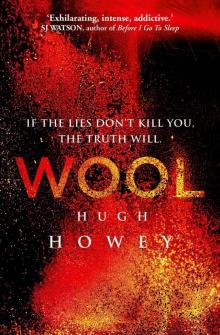 Wool
Wool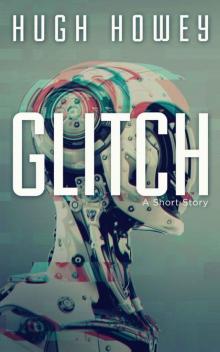 Glitch
Glitch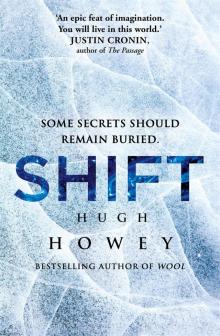 Shift
Shift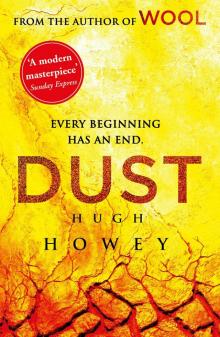 Dust
Dust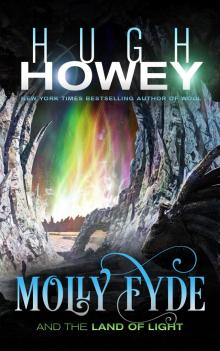 Molly Fyde and the Land of Light
Molly Fyde and the Land of Light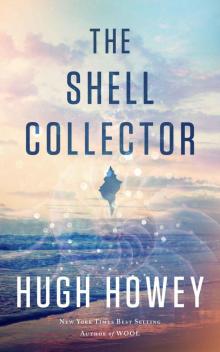 The Shell Collector
The Shell Collector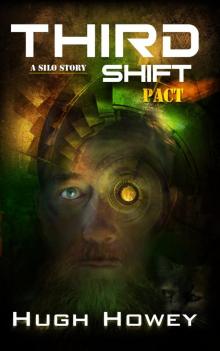 Third Shift: Pact
Third Shift: Pact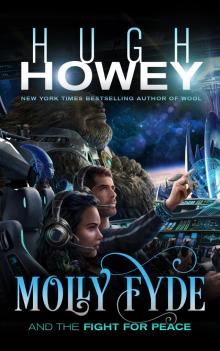 Molly Fyde and the Fight for Peace
Molly Fyde and the Fight for Peace Sand Omnibus
Sand Omnibus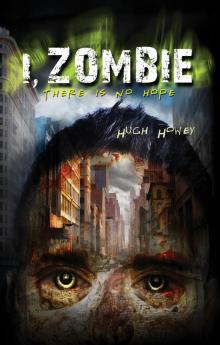 I, Zombie
I, Zombie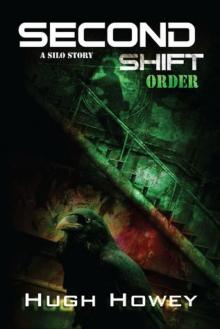 Second Shift: Order
Second Shift: Order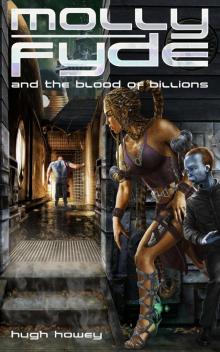 Molly Fyde and the Blood of Billions
Molly Fyde and the Blood of Billions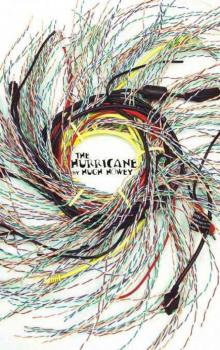 The Hurricane
The Hurricane The Box
The Box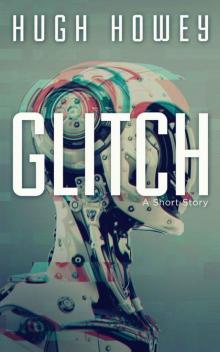 Glitch_A Short Story
Glitch_A Short Story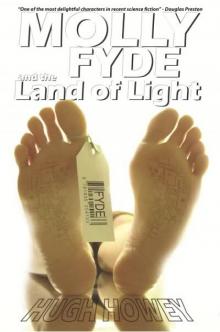 Molly Fyde and the Land of Light tbs-2
Molly Fyde and the Land of Light tbs-2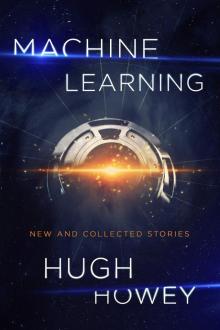 Machine Learning
Machine Learning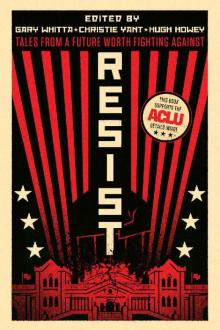 Resist
Resist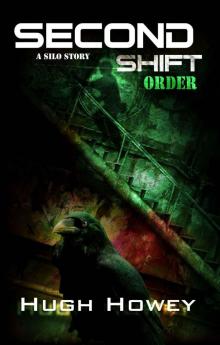 Second Shift - Order (Part 7 of the Silo Series) (Wool)
Second Shift - Order (Part 7 of the Silo Series) (Wool)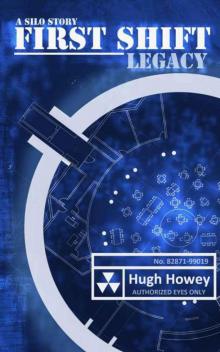 First Shift - Legacy s-1
First Shift - Legacy s-1 Stories on the Go: 101 Very Short Stories by 101 Authors
Stories on the Go: 101 Very Short Stories by 101 Authors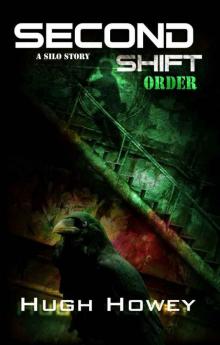 Second Shift - Order s-2
Second Shift - Order s-2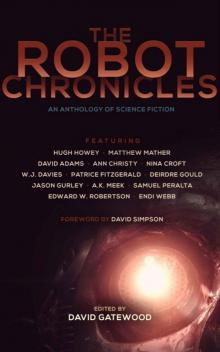 The Robot Chronicles
The Robot Chronicles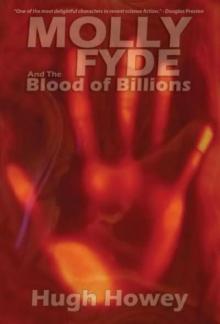 Molly Fyde and the Blood of Billions tbs-3
Molly Fyde and the Blood of Billions tbs-3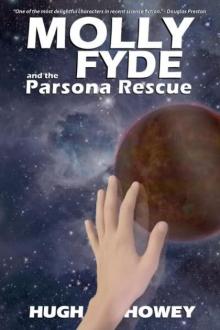 Molly Fyde and the Parsona Rescue tbs-1
Molly Fyde and the Parsona Rescue tbs-1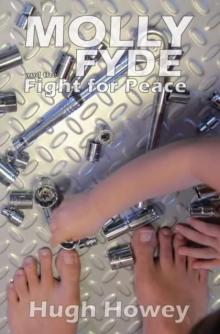 Molly Fyde and the Fight for Peace tbs-4
Molly Fyde and the Fight for Peace tbs-4 Sand
Sand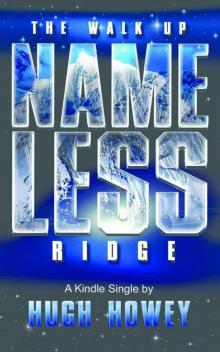 The Walk Up Nameless Ridge (Kindle Single)
The Walk Up Nameless Ridge (Kindle Single)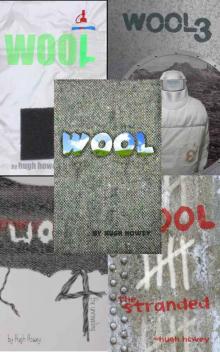 Wool Omnibus Edition (Wool 1 - 5)
Wool Omnibus Edition (Wool 1 - 5) The World of Kurt Vonnegut: Peace in Amber
The World of Kurt Vonnegut: Peace in Amber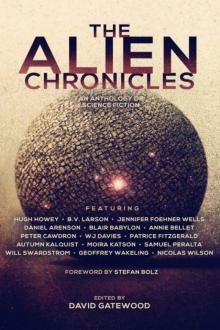 The Alien Chronicles
The Alien Chronicles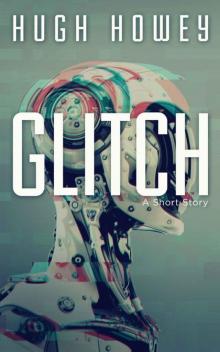 Glitch: A Short Story (Kindle Single)
Glitch: A Short Story (Kindle Single)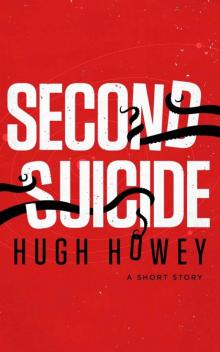 Second Suicide: A Short Story (Kindle Single)
Second Suicide: A Short Story (Kindle Single)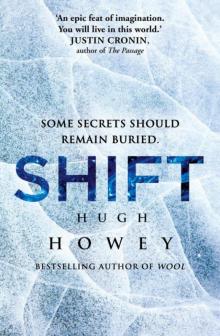 Shift (silo)
Shift (silo)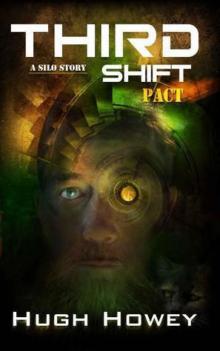 Third Shift - Pact
Third Shift - Pact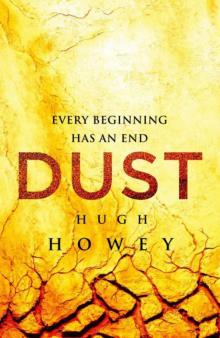 Dust s-9
Dust s-9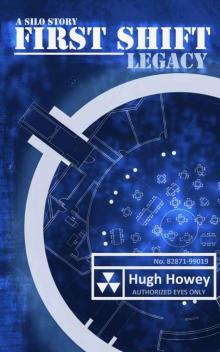 First Shift - Legacy (Part 6 of the Silo Series) (Wool)
First Shift - Legacy (Part 6 of the Silo Series) (Wool)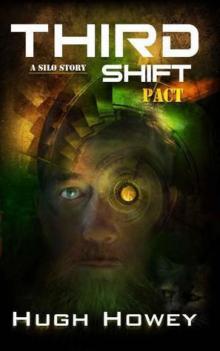 Third Shift - Pact s-3
Third Shift - Pact s-3 Sand: Omnibus Edition
Sand: Omnibus Edition The Box: A Short Story
The Box: A Short Story